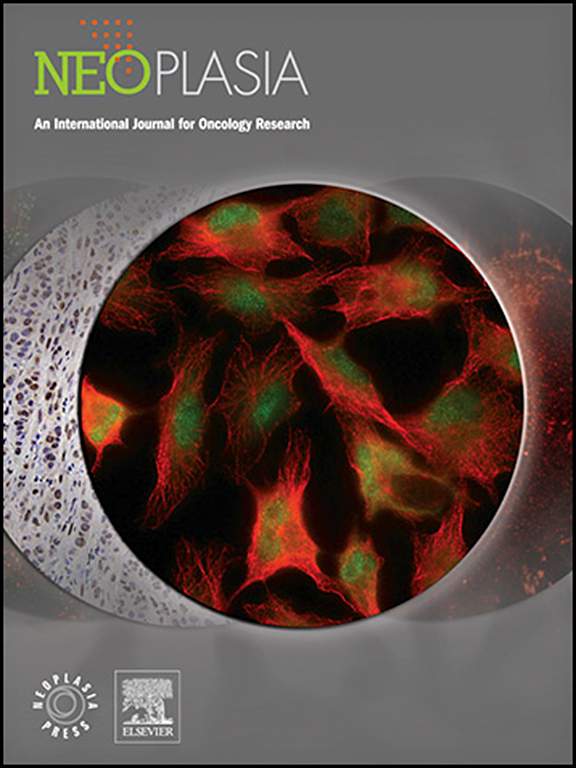Systemic inflammation in response to radiation drives the genesis of an immunosuppressed tumor microenvironment
IF 4.8
2区 医学
Q1 Biochemistry, Genetics and Molecular Biology
引用次数: 0
Abstract
The composition of the tumor immune microenvironment has become a major determinant of response to therapy, particularly immunotherapy. Clinically, a tumor microenvironment lacking lymphocytes, so-called "cold" tumors, are considered poor candidates for immune checkpoint inhibition. In this review, we describe the diversity of the tumor immune microenvironment in breast cancer and how radiation exposure alters carcinogenesis. We review the development and use of a radiation-genetic mammary chimera model to clarify the mechanism by which radiation acts. Using the chimera model, we demonstrate that systemic inflammation elicited by a low dose of radiation is key to the construction of an immunosuppressive tumor microenvironment, resulting in aggressive, rapidly growing tumors lacking lymphocytes. Our experimental studies inform the non-mutagenic mechanisms by which radiation affects cancer and provide insight into the genesis of cold tumors.
放射反应的全身性炎症驱动免疫抑制肿瘤微环境的发生
肿瘤免疫微环境的组成已成为治疗反应的主要决定因素,特别是免疫治疗。临床上,缺乏淋巴细胞的肿瘤微环境,即所谓的“冷”肿瘤,被认为是免疫检查点抑制的不良候选者。在这篇综述中,我们描述了乳腺癌肿瘤免疫微环境的多样性以及辐射暴露如何改变癌变。我们回顾了辐射-遗传乳房嵌合体模型的发展和使用,以阐明辐射作用的机制。利用嵌合体模型,我们证明了低剂量辐射引起的全身性炎症是构建免疫抑制肿瘤微环境的关键,导致缺乏淋巴细胞的侵袭性,快速生长的肿瘤。我们的实验研究为辐射影响癌症的非诱变机制提供了信息,并为冷肿瘤的发生提供了见解。
本文章由计算机程序翻译,如有差异,请以英文原文为准。
求助全文
约1分钟内获得全文
求助全文
来源期刊

Neoplasia
医学-肿瘤学
CiteScore
9.20
自引率
2.10%
发文量
82
审稿时长
26 days
期刊介绍:
Neoplasia publishes the results of novel investigations in all areas of oncology research. The title Neoplasia was chosen to convey the journal’s breadth, which encompasses the traditional disciplines of cancer research as well as emerging fields and interdisciplinary investigations. Neoplasia is interested in studies describing new molecular and genetic findings relating to the neoplastic phenotype and in laboratory and clinical studies demonstrating creative applications of advances in the basic sciences to risk assessment, prognostic indications, detection, diagnosis, and treatment. In addition to regular Research Reports, Neoplasia also publishes Reviews and Meeting Reports. Neoplasia is committed to ensuring a thorough, fair, and rapid review and publication schedule to further its mission of serving both the scientific and clinical communities by disseminating important data and ideas in cancer research.
 求助内容:
求助内容: 应助结果提醒方式:
应助结果提醒方式:


